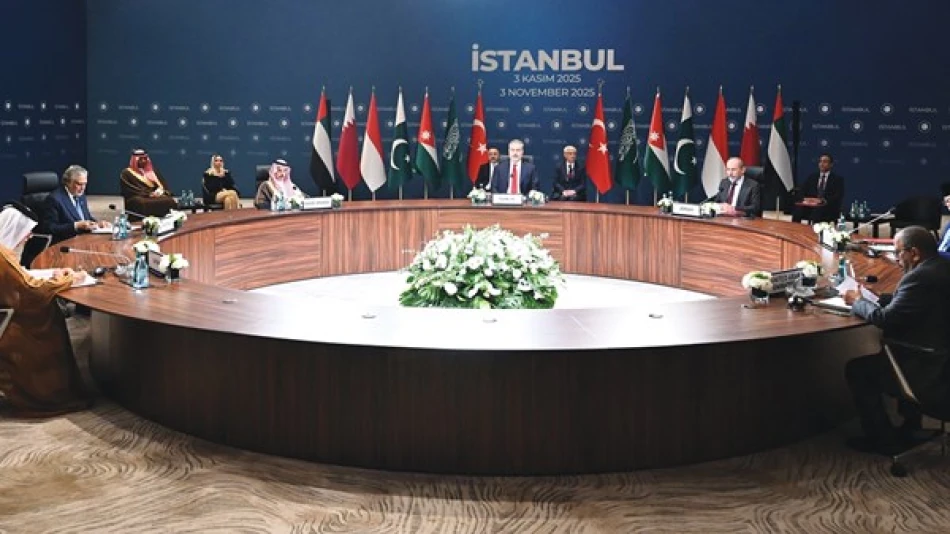
Istanbul Summit Backs Ceasefire Consolidation in Gaza
Arab and Muslim foreign ministers met in Istanbul to address violations of Gaza's fragile ceasefire and push for stronger international action. The meeting comes as Israel has reportedly killed 250 people since the ceasefire began, raising serious questions about compliance with the agreement.
The ministerial gathering, hosted by Turkish Foreign Minister Hakan Fidan and Qatar's State Minister for Foreign Affairs, brought together officials from Jordan, Saudi Arabia, Pakistan, and Indonesia. They focused on ensuring all parties stick to the ceasefire terms while addressing Gaza's humanitarian crisis and long-term governance.
Jordan's Foreign Ministry said the talks examined efforts to strengthen the ceasefire, remove barriers to humanitarian aid, and establish clear steps toward a two-state solution. The ministers also reviewed Trump's recent peace initiative and outcomes from the Global Alliance meeting in Riyadh that focused on implementing the two-state framework.
Turkish Foreign Minister Fidan accused Israel of systematically violating the ceasefire agreement and blocking humanitarian supplies to Gaza civilians. "Israel is restricting humanitarian aid to the sector and these attacks must end immediately," he said during a press conference.
The ministers are also working on a UN resolution to deploy a stabilization force in Gaza. Fidan noted that several countries will decide whether to contribute troops once they agree on an operational framework. This represents a significant step toward international involvement in Gaza's post-conflict security arrangements.
Jordan's Foreign Minister Ayman Safadi warned that Israeli actions in the occupied West Bank are undermining peace prospects. He emphasized that any stabilization efforts must connect to a political horizon that delivers comprehensive peace based on the two-state solution.
The Istanbul meeting reflects growing concern among regional powers that ceasefire violations could derail the entire peace process. With 250 reported deaths since the agreement took effect, there's mounting pressure for stronger enforcement mechanisms and international oversight.
Fidan stressed that participating countries share a unified message: "We must not be complacent in Gaza's peace process and cannot allow actions that endanger the ceasefire and peace." He added that Palestinian reconciliation talks are showing positive momentum, which could be crucial for Gaza's future governance structure.
The meeting signals that regional powers are taking a more active role in Gaza's stabilization rather than leaving it entirely to US-mediated negotiations. But the effectiveness of their diplomatic pressure depends largely on whether international mechanisms can actually enforce ceasefire compliance and humanitarian access.
Most Viewed News

 Layla Al Mansoori
Layla Al Mansoori






